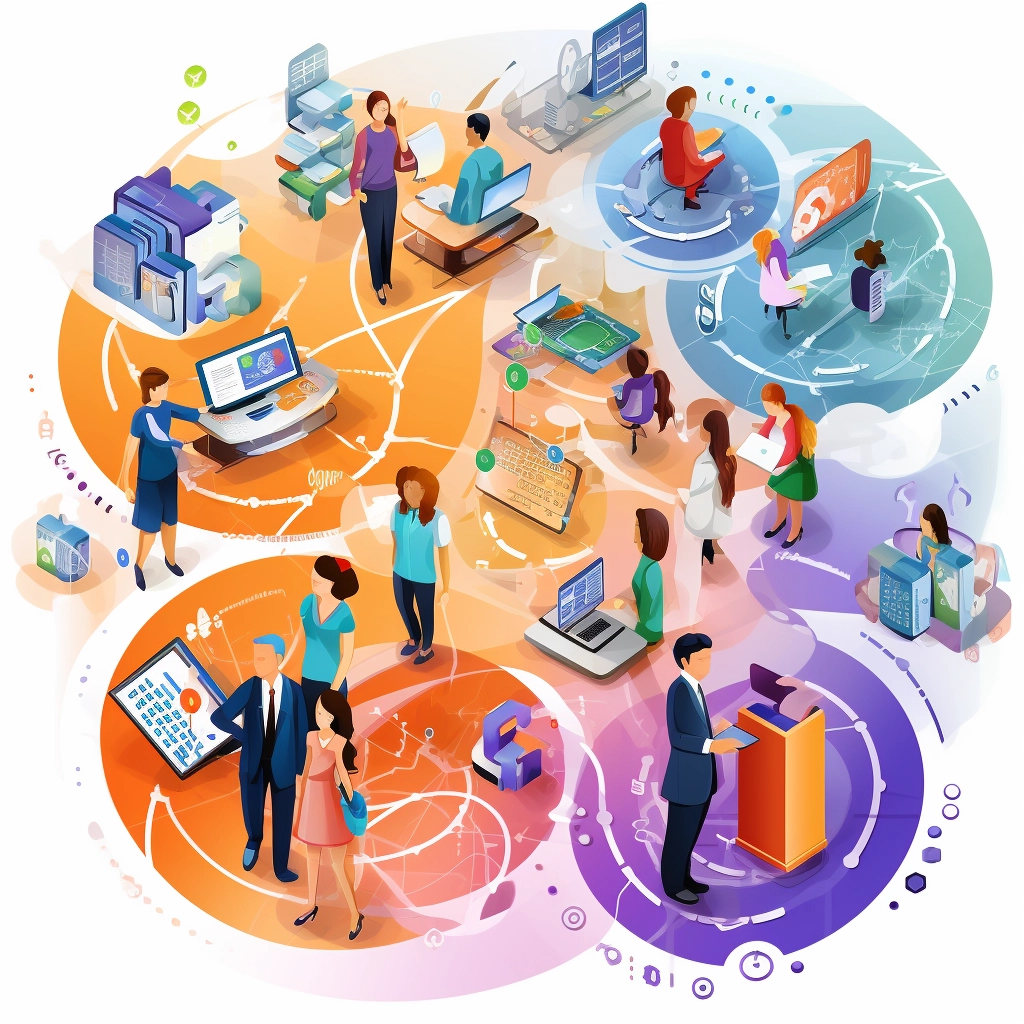In the world of artificial intelligence (AI), large language models (LLMs) have been making significant strides in recent years. These models, such as GPT-4, have the potential to revolutionize how we leverage language in various applications. However, designing, implementing, and optimizing workflows that harness the full potential of LLMs can be a complex and challenging task. Microsoft Research has introduced AutoGen, a framework that aims to simplify the orchestration, optimization, and automation of LLM workflows.
Automating complex workflows with AutoGen
AutoGen offers a solution to the complexities of LLM workflows by providing customizable and conversable agents. These agents can be based on LLMs, humans, tools, or a combination of these elements. With AutoGen, building a complex multi-agent conversation system becomes straightforward. It involves defining a set of agents with specialized capabilities and roles, as well as defining the interaction behavior between agents.
The modular and intuitive nature of AutoGen allows for the reuse and composition of agents, making workflows more efficient and reducing coding effort. For example, in supply-chain optimization applications, using AutoGen has shown to reduce the number of manual interactions needed and coding effort by more than 4x.
Capable, conversable, and customizable agents
AutoGen agents possess capabilities enabled by LLMs, humans, tools, or a mix of these elements. This flexibility allows for a wide range of application scenarios. Developers can configure the usage and roles of LLMs in an agent, incorporate human intelligence and oversight through a proxy agent, and even use LLM-driven code/function execution for automated tasks.
One of the key features of AutoGen is its support for automated chat between an assistant agent and a user proxy agent. This enables enhanced versions of applications like ChatGPT + Code Interpreter + plugins, which can be customized and embedded into larger systems. AutoGen also allows for extending agent behavior to support diverse scenarios, such as personalized and adaptable interactions based on past user interactions.
Dynamic workflows and versatile communication patterns
AutoGen's agent conversation-centric design brings several benefits. It naturally handles ambiguity, feedback, progress, and collaboration. It enables effective coding-related tasks, like tool use with troubleshooting. Users can seamlessly opt in or out via an agent in the chat. Additionally, AutoGen supports automated chat and diverse communication patterns, making it easy to orchestrate complex and dynamic workflows.
The future of LLM applications
AutoGen is an open-source project under active development and encourages contributions from individuals of all backgrounds. Microsoft Research collaborators and teams have made significant contributions to the project, promising innovative opportunities for building next-generation applications with LLMs. AutoGen aims to provide an effective and easy-to-use framework that fosters creativity and innovation in AI applications.
Getting started with AutoGen
AutoGen is freely available as a Python package and can be installed by running "pip install pyautogen." With just a few lines of code, developers can quickly enable powerful experiences using AutoGen's capabilities. The framework offers examples for various tasks, providing a starting point for developers to explore its potential.
Embrace the power of AutoGen in your LLM applications
AutoGen simplifies the complexities of designing, implementing, and optimizing workflows with large language models. By providing customizable and conversable agents, AutoGen empowers developers to build efficient and dynamic systems. With its support for automated chat and versatile communication patterns, AutoGen opens up new possibilities in AI applications. Embrace the power of AutoGen and unlock the full potential of large language models in your projects.
Links:
GitHub Repo
Announcement
